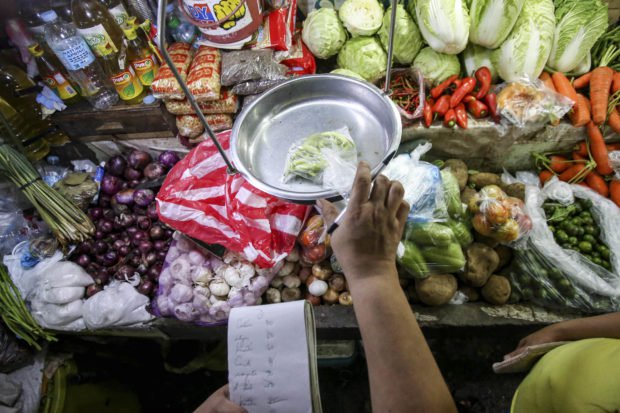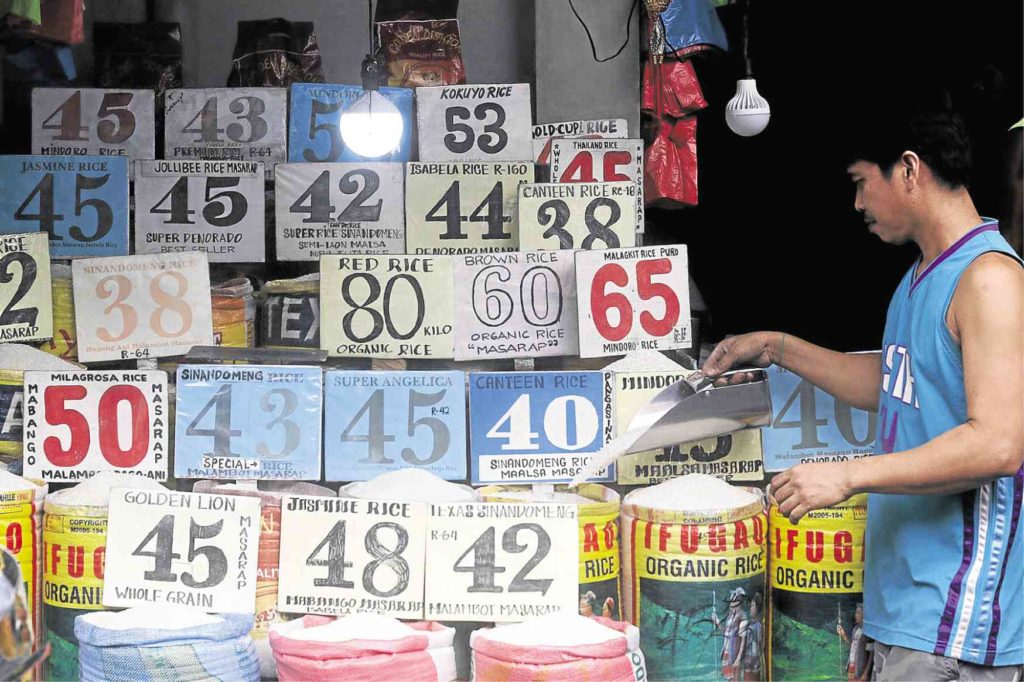At the beginning of 2018, President Rodrigo Duterte promised that the implementation of Tax Reform for Acceleration and Inclusion Act (TRAIN) would reduce the financial burden of Filipinos with its “simple, fairer, and more efficient tax system.” Eight months in, however, around 60 million Filipinos are suffering from worse income losses caused by accelerating inflation rates.
The TRAIN Law, which overhauled the country’s 20-year-old tax system, was supposed to “improve levels of income and provide for health, education, jobs, and social protection” for all Filipinos, most especially the poor. But with the increasing prices of food, transportation, and electricity due to the law’s higher fuel excise tax, its implementation only added much burden to the country’s poorest families.
The Philippine Statistics Authority announced on Sept. 5 that the August inflation rate accelerated from 5.7 percent in July to 6.4 percent, the fastest since 2009. This exceeded the 5.9 percent estimate of the Department of Finance and the Bangko Sentral ng Pilipinas.
In a research by Ibon Foundation, a local education and information development organization, the inflation rate rose from 3.4 percent in January to a five-year high of 5.2 percent in June.
With 2012 as the base year, the June inflation is already more than twice the 2.5 percent rate in the same month last year. If 2006 is the base year, the inflation would amount to 5.7 percent, which would be the highest recorded monthly rate in almost a decade.
This did not only give way to the immediate rise of commodities but has also costed income losses of around P993 to P2,715 to the country’s poorest sectors, the organization estimated.
Families within the poorest decile (or 10% of the estimated 23 million families in the country) which earns about P7,724 monthly have lost P993 or 12.9 percent of their income. Those who earn P21,119 monthly have lost a cumulative amount of P2,715.

As a mitigating measure, the TRAIN Law states that 10 million poor Filipinos should be provided with an Unconditional Cash Transfer worth P200 monthly this year and P300 for the years 2019 and 2020. But like the sworn benefits of the TRAIN Law, this also turned out to be a failing promise. Only 3.8 million Filipino households have received their cash transfers, leaving 6.2 million households struggling to provide themselves with their basic necessities.
Ever since the stress of keeping up with the rising prices of goods and services began, the administration’s economic managers have been reassuring the public that these were just “temporary reactions” of the markets to the law. They claimed that the average inflation in 2018 is within 2 to 4 percent. However, with the year-to-date inflation at 4.8 percent and the recent nine-year high surge, it is more likely that the government will miss their target, again.
Header image courtesy of Inquirer.
Get more stories like this by subscribing to our weekly newsletter here.
Read more:
LOOK: What you need to know about the new tax law
Rather than rely on Pinoy resiliency, the government should focus on flood control
Duterte’s errand list for the lawmakers according to his SONA
Writer: AMIERIELLE ANNE BULAN




